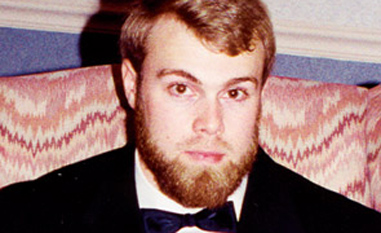 On Friday, July 17, 2009 at an emergency hearing at the federal courthouse in Akexandria, Virginia, Judge Leonie Brinkema ordered the government to transfer incarcerated Northern Virginia youth Seifullah Chapman to a medical prison facility.
On Friday, July 17, 2009 at an emergency hearing at the federal courthouse in Akexandria, Virginia, Judge Leonie Brinkema ordered the government to transfer incarcerated Northern Virginia youth Seifullah Chapman to a medical prison facility.
Seifullah Chapman, now 36, was arrested along with ten other young Muslim men mostly from the Washington DC area in June of 2003 in what has been called the “Paintball Jihad” case due to the government's claim that the men played paintball in Virginia to train for jihad in Kashmir.
Since his incarceration, Seifullah said he has been subjected to mistreatment by prison officials, being singled out, harassed, and prevented from taking critical insulin doses as needed; Chapman is a type-1 diabetic.
Type-1 diabetics cannot produce insulin like healthy bodies. Insulin is needed to take sugars from the blood to the cells. Delaying scheduled insulin doses to a type-1 diabetic can rapidly deteriorate their health, send their bodies into shock, and even lead to death.
Seifullah's attorney John Zwerling petitioned the court to call for the emergency hearing. The American Civil Liberties Union (ACLU) also wrote to the court, urging them to address allegations of mistreatment and abuse in the prison. At the hearing, prosecutor Gordon Kromberg represented the government and argued that the mistreatment allegations were hearsay. However, Seifullah's wife presented a sworn affidavit of her communication with her husband, including details of a July 4, 2009 visit at his federal prison in Pennsylvania.
“The minute Seif walked to the room I couldn't believe what I saw. I asked him, "Oh my God how much do you weight now?" He told me that they didn't want to weigh him. He looked so pale and so tired. I asked him about his sugar level and he told me it is been between 400 and 500. He told me he was not able to eat anything for the past 9 days. I am sure he lost more 20 pounds in this short amount of time. My kids were sitting next to me listening to the whole conversation and this has deeply affected them. My younger daughter keeps asking me why they want to kill her father. We are all concerned about Seif's health. Seif doesn't know why they are doing this to him. He told me every time he asked someone they pointed their finger at someone else. I am sure that if this treatment continues, my husband's life is in serious jeopardy,” she wrote.
Six of the original “Paintball Jihad” defendants plead guilty, and two others were acquitted. Only Seifullah Chapman, Masoud Khan, and Hammad Abdur-Raheem went to trial. All three were convicted; Abdur-Raheem has since been released after serving his sentence. Seifullah was given 85 years, while Masoud Khan was given life. Even Judge Brinkema, though she imposed the sentence, said Seifullah's sentence was "sticking in my craw.''
"What Mr. Chapman has been found guilty of is a serious crime, but there are murderers who have served far less time ... I have sentenced al Qaeda members who were planning attacks on these shores to far less time,” she told a packed courthouse at the original sentencing in 2004.
At a re-sentencing on July 29, 2005 prompted by an earlier Supreme Court decision making mandatory sentencing guidelines advisory, judge Brinkema reduced Seifullah's sentence to 65 years. On that day, both Seifullah and his attorney made Brinkema aware of the mistreatment he was facing, including mistreatment directly affecting his medical condition.
“I will either go free one day, and this is victory because I am innocent and should be with my family, or I will die with patience in a maximum security prison for crimes that I have not committed, and this is severe oppression which can only be rewarded by Allah’s Mercy. Your honor, this sentence is not justice. In the end, when all is said and done, what this sentence cries is: Justice…Justice…Muslims need not apply. Muslims are no longer welcome here,” Seifullah told the court in his sentencing statement.
Seifullah's attorney, John K. Zwerling, called the case and the sentences imposed in 2004 "the greatest miscarriage of justice I have ever been involved in."
In late May of 2007, the United States Supreme Court declined the defense's request to intervene in the case.
For more information on the “Paintball Jihad” case, search the Muslim Link website at www.muslimlinkpaper.com.









Comments powered by CComment